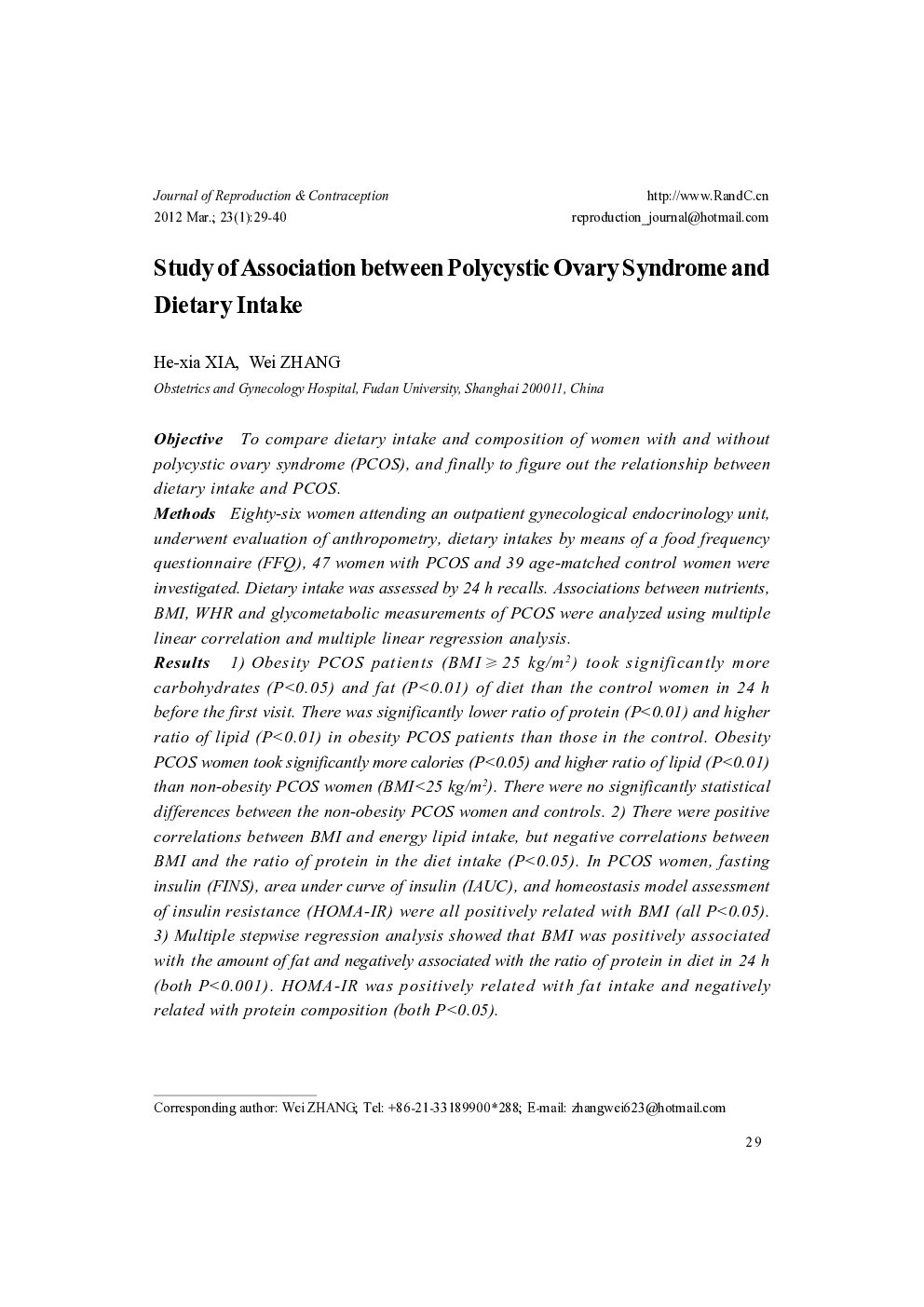| Article ID | Journal | Published Year | Pages | File Type |
|---|---|---|---|---|
| 3963418 | Journal of Reproduction and Contraception | 2012 | 12 Pages |
ObjectiveTo compare dietary intake and composition of women with and without polycystic ovary syndrome (PCOS), and finally to figure out the relationship between dietary intake and PCOS.MethodsEighty-six women attending an outpatient gynecological endocrinology unit, underwent evaluation of anthropometry, dietary intakes by means of a food frequency questionnaire (FFQ), 47 women with PCOS and 39 age-matched control women were investigated. Dietary intake was assessed by 24 h recalls. Associations between nutrients, BMI, WHR and glycometabolic measurements of PCOS were analyzed using multiple linear correlation and multiple linear regression analysis.Results1) Obesity PCOS patients (BMI ≥ 25 kg/m2) took significantly more carbohydrates (P<0.05) and fat (P<0.01) of diet than the control women in 24 h before the first visit. There was significantly lower ratio of protein (P<0.01) and higher ratio of lipid (P<0.01) in obesity PCOS patients than those in the control. Obesity PCOS women took significantly more calories (P<0.05) and higher ratio of lipid (P<0.01) than non-obesity PCOS women (BMI<25 kg/m2). There were no significantly statistical differences between the non-obesity PCOS women and controls. 2) There were positive correlations between BMI and energy lipid intake, but negative correlations between BMI and the ratio of protein in the diet intake (P<0.05). In PCOS women, fasting insulin (FINS), area under curve of insulin (IAUC), and homeostasis model assessment of insulin resistance (HOMA-IR) were all positively related with BMI (all P<0.05). 3) Multiple stepwise regression analysis showed that BMI was positively associated with the amount of fat and negatively associated with the ratio of protein in diet in 24 h (both P<0.001). HOMA-IR was positively related with fat intake and negatively related with protein composition (both P<0.05).ConclusionsThe statistical differences exist in the nutritional composition of obesity PCOS patient's diets, which may contribute to obesity PCOS development.
